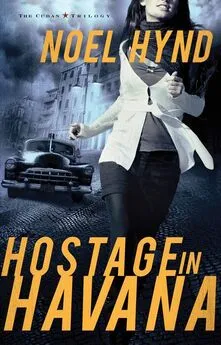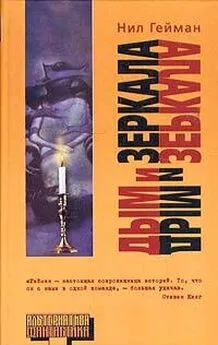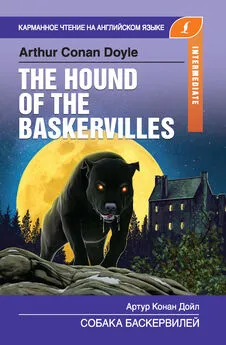Noel Hynd - Hostage in Havana
- Название:Hostage in Havana
- Автор:
- Жанр:
- Издательство:неизвестно
- Год:неизвестен
- ISBN:нет данных
- Рейтинг:
- Избранное:Добавить в избранное
-
Отзывы:
-
Ваша оценка:
Noel Hynd - Hostage in Havana краткое содержание
Hostage in Havana - читать онлайн бесплатно полную версию (весь текст целиком)
Интервал:
Закладка:
She entered and, in keeping with her plan, slid into the back row on the left side. She reflected for a few moments, as if in prayer, and stared at the ornate rococo cross above the altar. She took stock. No one else present. God, she mused, had provided her the perfect time and opportunity for her visit.
She looked around. Any spies? Any observers whom she hadn’t seen at first glance? Her nerves were suddenly on edge again. Who needed post-traumatic stress when she could have her traumatic stress while the events were taking place?
Her thin cotton dress stuck to her skin. She felt sweat pouring from her. Inside, it felt like a dozen hummingbirds were zipping around her stomach.
Then, convinced that no one was looking, she kneeled forward to pray. She closed her eyes and slid her right hand under the pew in front and groped along for several feet in each direction. She prayed it would be there.
Finally her fingertips hit something – pieces of heavy plastic tape, such as Maurice Fajardie back in Langley had suggested. She followed these along until she found metal, a little square of it. Her heart surged. She could tell before she even retrieved it: a cell phone, complete with a power cord for recharging. She pulled it out of the tape and held it in her hand. She turned it on.
It powered up. She checked it for messages. There were none. She examined it to see if it had been tinkered with in any way. She found nothing that alarmed her. As a precaution, she shut it down, removed the battery and the SIM card, then reassembled it. Then she slid it into her tote. She made sure it was turned off to minimize the chances that it could serve as a GPS for an enemy.
Then she heard a loud bang behind her. In an instant her hand, still in her tote bag, jumped from the cell phone to her gun, and she was convinced she had waltzed into a trap. Her wet palm closed upon the weapon and clutched it.
She turned. A priest. He was a small elfin figure, much like the little men in black cassocks she had seen in remote Italian towns when she was a college student. Her eyes swept the space. No one else. She was safe, or so it looked. She looked back at the priest. His hands were clear and clean. Not a fake priest who was actually a gunman or a cop, she deduced. She released her own gun.
The priest crossed himself, then reacted in surprise to see a pretty young woman sitting in a rear pew. He nodded to her, smiled, and mumbled a blessing in Spanish.
Alex returned the greeting. Then he walked down the center aisle and went about his business of tending to something behind the altar. She watched him all the way, making sure he was okay. Then she bowed to the cross and quickly exited the church.
She returned to the small square near the Hotel Ambos Mundos, where she caught her breath and let her heart settle. She searched her soul. With all that money sitting in a bank account in her favor in New York, did she really need this? Is this truly what she was supposed to do with her life?
Alex sat down at a table at a cafe on the square. A waiter – handsome with an easy smile – approached her. He spoke in Spanish and she answered easily.
“I’m hot and very thirsty,” she said. “What would be good?”
His smile widened. “Orange juice, just squeezed,” he said. “Or lemonade.”
“From a bottle or fresh?” she asked.
“Both are bottled,” he answered.
“Lemonade would be excellent,” she said.
He nodded and disappeared. She turned her attention to the plaza. She watched the city live and breathe. She was relieved that no one paid her any special attention. She was used to catching the eyes of men, and she was used to being able to ignore it. The linen dress she wore was reasonably demure. The hem was at her knee. She felt highly vulnerable.
She finished the lemonade and was hungry again. She ordered a small plate of shredded pork with rice and beans. She noticed from people at other tables that Coca-Cola had slipped past the embargo. So she ordered one. Then a second, both with ice. A slight breeze kicked up. She felt better and began, for the first time, to relax.
For a moment, she scanned the city street. There was not a brand, nor a neon sign, nor an advertisement of any sort. Rather, there was just a view of time slowly drifting from the far past into the present, with no particular hurry. The square was baked in Caribbean sunshine. Cuban socialism had created a strange mid-twentieth-century aesthetic, a city freed from agitation, caught in a strange state of decay and quietude.
She saw vast spaces, away from the assault of every form of commercial message and, for that matter, far from Twitter and email as well. The global mall was nowhere to be seen in this city, and, in a way, she cherished it. It was so different from New York. Even when she took a taxi in New York, a television would come on with its infomercials. Here she could watch the square, watch the modest traffic, watch the sunlight on the walls of the old city, watch lovers passing, watch businessmen expounding, watch cab drivers negotiating, watch children smiling. Here was the idle sensuality of the pre-Blackberry age.
Beyond street-level doors were courtyards, some shabby, some fine. Her eyes, rising one flight up, saw that Havana had also preserved its antique wrought-iron balconies and its old baroque Castilian flourishes. Even if the city was crumbling, even if it could be interpreted as a monument to the failure of communism, it had its charm.
She left the cafe and wandered across the square to the hotel once again. She took stock. She decided to walk to a nearby hotel called La Posada Cubana, a faded plaster building, just off the main square, with a tattered blue awning. She registered without a problem. The posada was close enough to the Ambos Mundos to be convenient, but far enough away to help her keep a low profile. She didn’t want to register at the Ambos in case it was a trap.
She went to her room. The window looked out onto a backstreet. She examined the ledge and the nearby rooftop and quickly assessed that the window could make an escape route if necessary. She was pleased.
She drew the curtain and took out the cell phone. She opened it and turned it on. The connection remained. What was that number again? Who were those two presidents? Bush Johnson. Eight eight six four. Better pick the correct Bush and the correct Johnson, she mused. It was the first funny thought she had had since the bullets had hit the boat.
Again she was aware of the sweat on her back. It told her that even if she felt calm, her insides were set to explode. On the other end of the phone was the click of a pickup. No voice, no human hand, just an electronic response.
“I’m here,” she said and then disconnected. Then she dialed another random number and clicked off before it answered. That way she cancelled out any record of the last number she dialed. Okay, she told herself. At least her better instincts were working.
Good vibe: She felt as if she were back in Lagos or Kiev or Paris or Madrid or Cairo. She was back in the game, liking it against her better judgment.
Bad vibe: Things had blown up in all those places. So much for better judgment.
She glanced at her watch. It was 3:45 p.m. She went back to a cafe on the square and ordered a cold drink. Then she examined the cell phone. Yes, it had worked. But there was no return message. The waiting game for the scummy Roland Violette, such that it was, had begun.
She finished her meal and paid. The cost was equivalent to five American dollars. She stood, crossed the square, and fell in with the pedestrian traffic. Again she entered the Ambos Mundos. It was still rendezvous time. Or not.
The faded yellow lobby was cool and refreshing again after the hot city streets. The old elevator continued to crank and creak, and once again, Alex felt as if she had walked into the past.
Again in the lobby, she looked each way – there was no Paul. She walked to the piano bar where the large fans still whirled on the ceiling and lazily cooled the room. The wicker chairs had been rearranged in the past hour. No surprise there. The carpet was still reddish and threadbare, and the piano player was still playing sambas.
Then, just as she was again scanning the men at the bar, whose eyes had once again turned to her as she entered, she heard a familiar voice behind her. “Alex,” said the male voice shyly. It said her name so softly and reassuringly that it seemed to come up out of the ground. English with an American accent. “Well, I’ll be darned,” the voice said. “Imagine seeing you here!”
She turned sharply and looked behind her. Seated in a small alcove, partially obscured by a large potted plant, positioned where he could watch everyone who came and went, was the man she knew. He was alive – in a fresh suit and seeming to be no worse for their crash landing on Cuba’s hostile shores.
“Paul!” she said too loudly. “Holy …!”
He held a finger to his lips. For a moment, she stared. Then, his lies and his anguishing casualness notwithstanding, some pent-up emotion in her broke. She was thrilled to see a familiar face, and just as thrilled to know that he was alive.
“Paul!” she repeated. “Thank God!”
His long legs unfolded, he stood, and his arms opened in a broad welcoming gesture. She rushed to him. She didn’t know whether to kiss him or throttle him, so instead she let him call the tune. He held her in a long powerful embrace and finally planted a kiss on her cheek. With that one gesture, their joint mission seemed to be back on track. And to Alex, the world seemed much less of a lonely, foreboding, frightening place.
Across the square from the Hotel Ambos Mundos, Major Ivar Mejias stepped from an unmarked police car, which had just cruised to an abrupt halt at the curb. His shirt was crisp and white, he proudly displayed his sidearm as well as his badge, and displeasure and impatience were written all over his face.
Two other police cars jounced to the curb behind him. The drivers stayed with the cars as a small phalanx of uniformed city policemen assembled near their commander. Mejias signaled with a nod of his head toward the hotel’s side of the street. Half a dozen other police officers fell in stride behind him.
All of Mejias’s officers wore bulky sidearms. Two carried shotguns. It might have been a routine midday patrol, one that made the tourists feel safer and kept the jineteras, the street hustlers, on the defensive. Mejias and his small detachment would normally go from bar to bar, shop to shop, eyeballing people and places, running with whatever they saw against anyone for whom they might be on special alert.
The shotguns, however, indicated that something out of the ordinary was afoot. Mejias was a very angry man today, and nothing about this patrol was ordinary. In fact, nothing, he felt, could ever be ordinary again until he located the two people – a man and a woman – who had slipped away from the skiff on the beach.
FORTY-SEVEN
Paul was, Alex was reminded quickly, a big man and a strong one. His arms were tight around her, and he hugged her dearly, as if they were expiating for what had happened at the shoreline. The hug lasted for several long seconds. Then he released her. She looked him in the eye. She had to fight back the wave of anger that was now resurgent.
“What the – ?” she began to sputter. She checked herself, then spoke softly but angrily. “What happened on the beach?”
“Well, I’d say we had a calamitous arrival,” he said in low tones. His breath was boozy. “How would you categorize it?” he asked.
Читать дальшеИнтервал:
Закладка:










